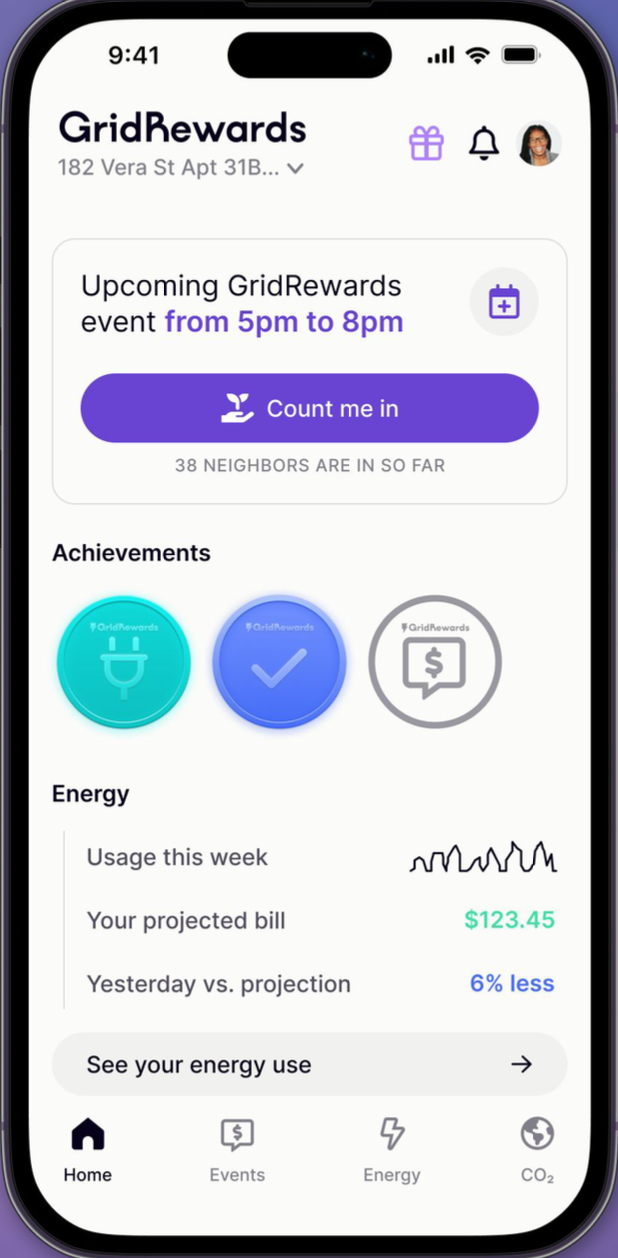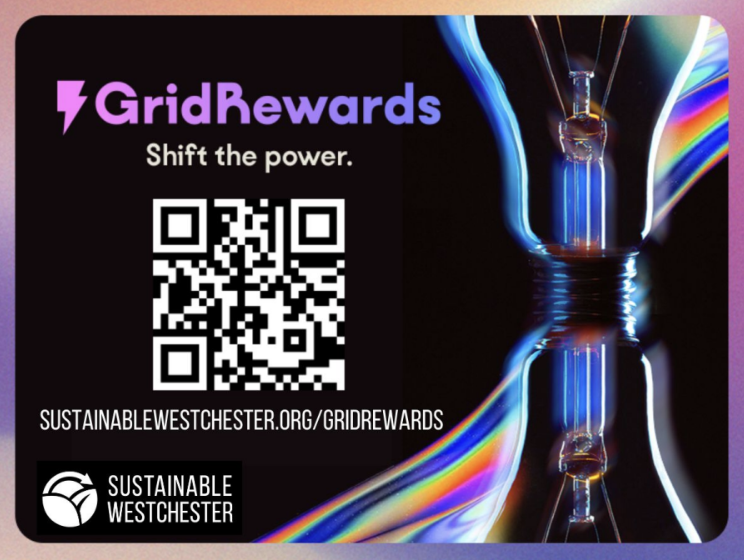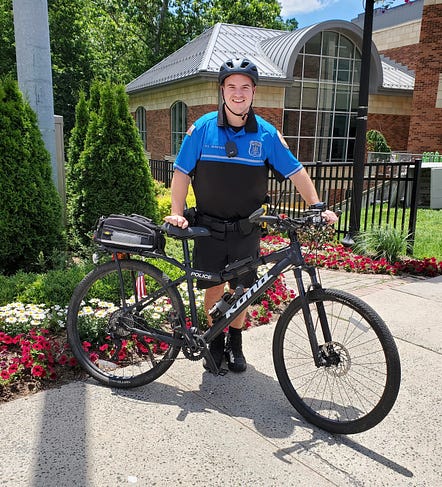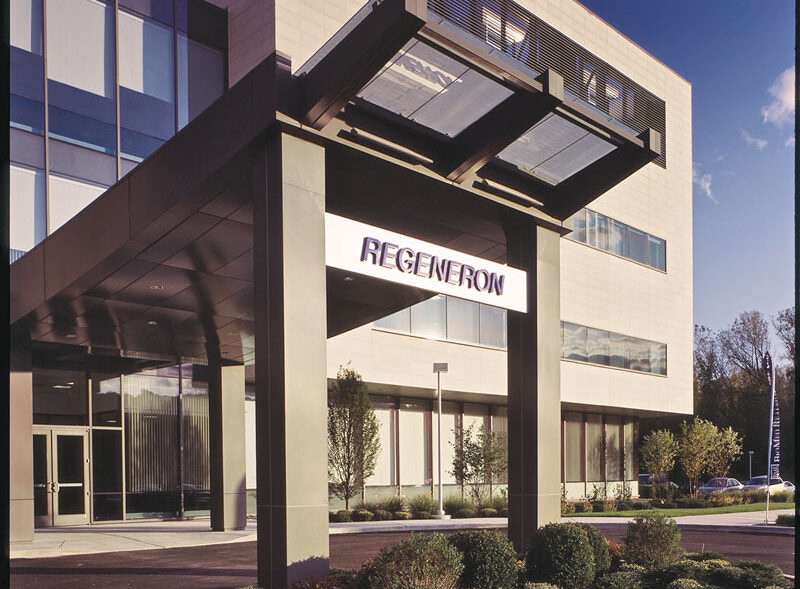
By Alexander Roberts–
In 2020, Sustainable Westchester, the local renewable energy supplier, began offering consumers cash inducements to reduce their electricity usage during peak summer demand periods. That year, only 100 customers signed up; last year nearly 3,000 participated. This year, however, the company is making a huge push to sign up tens of thousands of customers in Westchester, in part through a “friendly competition” engaging the seven rivertowns mayors in a cheerleading effort for “GridRewards,” a free app offered to Con Ed customers.

A major weakness in the local electric grid is that peak usage days in the summer can force Con Ed to fire up standby “peaker plants” that typically emit more pollution than the standard plants in operation. Though used infrequently, such plants cost approximately $1 billion to maintain. GridRewards is a revolutionary new tool consumers can upload on their mobile phones to alert them in advance of an impending power surge. Acting on the app’s prompt, users can pre-cool their homes, then raise their thermostats or shut off air conditioning, thereby lowering their electricity usage. If enough customers take advantage of the warning, utilities can avoid resorting to peaker plants.
With GridRewards, a free software app, residential consumers receive push notifications to their phones, alerting them to turn down their air conditioners or reduce their “plug load,” by avoiding use of their laundry equipment and dishwasher, for example, or shutting off some lights. If the mayors succeed in instilling energy-reducing habits during the summer peak periods, the result will be not only less energy use, but also reduced risk of blackouts and brownouts.
According to Lauren Brois, Director, Energy Smart Homes for Sustainable Westchester, “In 2022 our almost 3,000 customers collectively created a 7-megawatt carbon negative virtual power plant, with the average user earning more than a hundred dollars in cash back.” The results last year for the GridRewards app was the equivalent of taking 11,000 homes off the grid for one day, or avoiding 200 tons of carbon in the atmosphere.
Con Ed pays customers to reduce energy during peak periods under its so-called “demand response” programs. However, calculating how much of those payments go to customers gets more complicated when customers sign up for apps such as GridRewards, the program used by Sustainable Westchester’s company partner, Logical Buildings. Con Ed now lists 23 companies like Logical Buildings, called “aggregators,” nine of which offer demand response payments to residential customers similar to GridRewards (see: https://www.coned.com/-/media/files/coned/documents/save-energy-money/rebates-incentives-tax-credits/smart-usage-rewards/aggregator-list.pdf?la=en).
It is these aggregators that negotiate the cash rebates from Con Ed and pass a percentage on to the consumer. Sustainable Westchester would not say what share of the rebate the consumer ultimately receives, versus what is retained by Logical Buildings and Sustainable Westchester. A Sustainable Westchester spokesperson said she would have to ask permission to share that information from her executive director, who is currently on vacation.

Tarrytown Mayor Karen Brown, one of the mayors promoting GridRewards, said that to her knowledge none of the mayors was told that before endorsing the program. Such information might allow consumers to compare the cash-back they receive with GridRewards to the other eight aggregators on Con Ed’s list. Last year, the average GridRewards participant received a payment of about $100.
The new program comes on the heels of a sharp increase in the cost of electricity under another Sustainable Westchester program called Westchester Power. Last November, after about 40% of Westchester’s Con Ed customers signed up for Sustainable Westchester’s Energy Services Company (ESCO) partner, Westchester Power’s guaranteed rate per kilowatt hour doubled from 7.5 cents to about 15 cents. As of the latest March Con Ed bill, the underlying cost of electricity purchased through Sustainable Westchester is about 50% higher than what Con Ed itself charges customers. (see https://thehudsonindependent.com/westchester-powers-doubled-electricity-charge-burns-consumers/).

If the mayors’ campaign is successful and GridRewards is widely accepted, it promises to lower the risk of blackouts in the rivertowns, as well as lessen the harmful effects of pollution from peaker power plants. What would help even more is for aggregators like Sustainable Westchester to share the percentage of savings they are passing on to consumers, so that they can compare plans and minimize not only energy use but also the utility bills they pay.
Local officials pictured above, from Left to Right: Dobbs Ferry Village Administrator, Richard Leins; Elmsford Village Administrator, Michael Mills; Mayor of Elmsford, Robert Williams; Sleepy Hollow Village Administrator, Anthony Giaccio; Mayor of Dobbs Ferry, Vincent Rossillo; Irvington Village Administrator, Larry Schopfer; Mayor of Hastings-on-Hudson Nicola Armacost; Mayor of Tarrytown, Karen Brown; Hastings Village Manager, Mary Beth Murphy; Tarrytown Village Administrator Richard Slingerland; Mayor of Ardsley, Nancy Kaboolian
Read or leave a comment on this story... Print
Print























